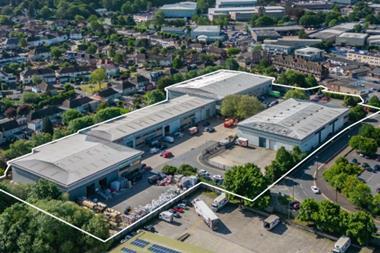Assura’s CEO Jonathan Murphy returns to PropCast for a second time ahead of the NHS’s 75th birthday. The CEO of the FTSE 250-listed REIT, which develops, invests in, and manages a portfolio of primary healthcare facilities across the UK, discusses the role of the private sector in supporting the NHS, the inflation-hedging nature of healthcare property, and the importance of retrofitting in keeping buildings sustainable.
Listen to this podcast via Apple, Amazon, Spotify or SoundCloud (and many other platforms) or just use the player below:
FTSE 250-listed REIT Assura invests in assets that serve perhaps the most fundamental societal need: healthcare. It is the largest developer and investor in GP surgeries in the UK, with 605 across the country.
It is this more preventative, community-orientated care which CEO Jonathan Murphy believes should assume higher priority in terms of funding, though the fickle nature of politics too often prevents this from happening.
“Prevention and stopping people getting sick in the first place is clearly where we should be allocating resources,” he observes. “The problem from a political perspective is that it’s money today for results way down the line.”
This is despite the fact, Murphy argues, that a more long-term and holistic approach to healthcare can create a more sustainable, cost-effective system.
“If you see a GP, typically that is about one fifth of the cost of you going to A&E for the NHS,” he explains. “So our focus is delivering that crucial infrastructure for the NHS.”
“There’s a massive bias towards spending on hospitals rather than primary care, but it’s where 85 percent of your interaction with the NHS happens.”
Murphy also emphasises the importance of private sector funding of primary healthcare in an environment where economic pressures make it difficult for governments to allocate significant amounts of capital to do the same.
“If there was a change of government, the new government wouldn’t have the money to directly fund and build these facilities themselves,” he notes. “They just wouldn’t have the billions to do it.”
He is, however, not worried that a Labour government will be obstructive to private support: “Wes Streeting has been very open about the fact that it’s a mixed economy and he’s not against the private sector delivering services.”
The public-private partnership is mutually beneficial. Assura, which earns 80 percent of its income from the NHS, is able to give investors long-term, counter-cyclical returns in return for real estate vital to society’s health.
“Effectively, from an investor’s perspective, if you’re investing in Assura, then you’re investing in long-term government income with an inflationary undertone,” Murphy says.
Another related topic of discussion was the role of the private sector in healthcare more generally. Since the pandemic, backlogs and inefficiencies in the NHS have received an increasing amount of coverage.
Murphy agrees that this has led to a more open public dialogue regarding modifications to the country’s healthcare system: “It’s really interesting to see that it’s less politically sensitive”.
He is however wary of the word “privatisation”, because the word is “very charged”.
“What we’re doing is still providing healthcare free at the point of delivery,” Murphy explains. “It’s just that how it’s delivered could be done slightly differently.”
More differentiation in terms of healthcare delivery could present new opportunities to Assura in enabling it to offer a wider suite of facilities and services as part of its primary care real estate offering.
“They [private operators] want diagnostics and testing, they want to be able to do run blood tests, they want to be able to deliver a broader range of care from that one centre,” he remarks.
“There is still massive demand for health space and health infrastructure in this country. So whether you’ve got a private badge on it or NHS badge, the underlying demand is still just as strong”.
State-of-the-art facilities are a hallmark of Assura’s projects. It is committed to delivering only net zero carbon buildings by 2026, and Murphy is also a big believer in the retrofit model to reduce costs and improve sustainability if done in a flexible, unrigid way.
“I think a ‘retro first’ mindset is going to be the way forward,” he argues. “If the NHS is going to be constrained from a budget perspective, and if they are flexible on some of the regs, then actually retrofitting has to be a more economical solution as well.”
To demonstrate Assura’s commitment to sustainability, after being told solar panels were too expensive by the NHS for some developments, the company has committed to paying for them itself.
“We want to prove to the NHS that there’s benefit by investing in a net zero solution,” Murphy says. “We’re funding all of that ourselves, the NHS isn’t paying a penny for that.”
































No comments yet